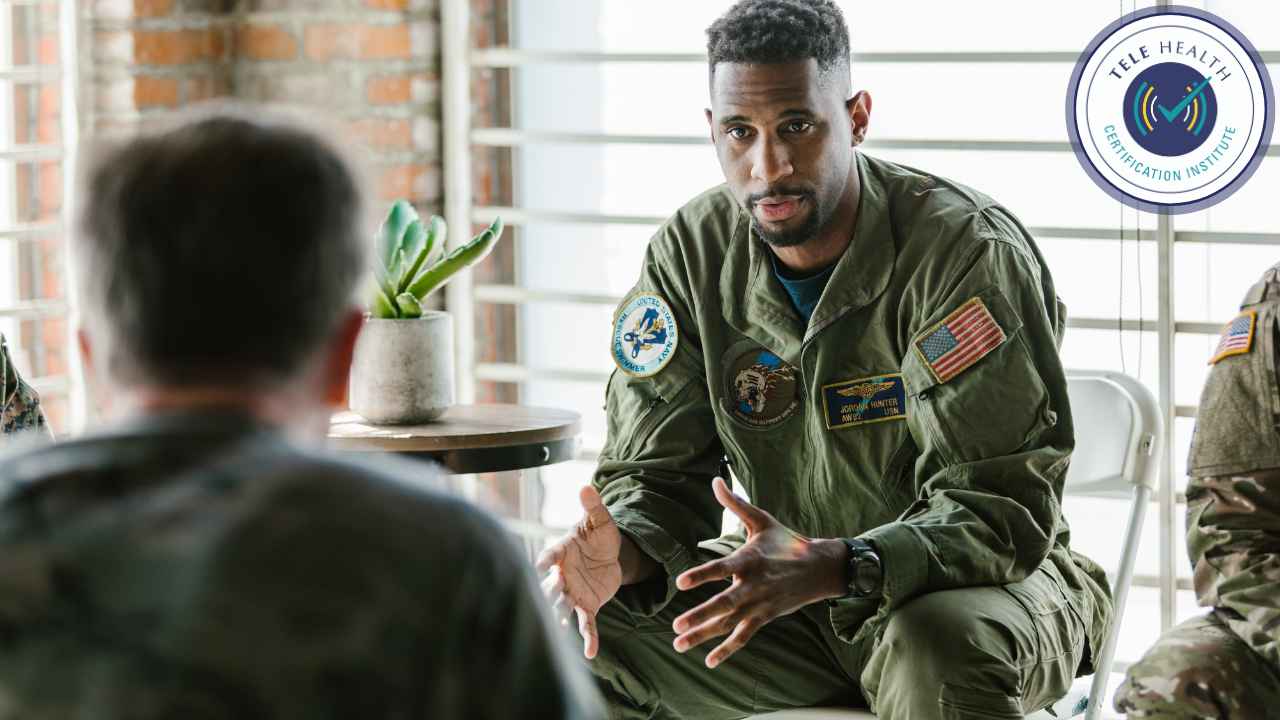Operation Military Counseling
Enroll in the Online Self-Study and complete the training on your own schedule.
1 CE hour available for behavioral health clinicians completing the Online Self-Study

Military life reshapes everything—from how a person experiences stress to how they define family, purpose, and survival. For behavioral health professionals, supporting active-duty members, veterans, and their families means understanding a culture forged in service, sacrifice, and resilience.
This course invites you into that world. It helps you see beyond diagnoses and statistics to the human being beneath the uniform—someone carrying both visible and invisible wounds, navigating reintegration, identity shifts, and the lifelong mission of wellness.
Enroll in the 1 CE Online Self-Study for FREE
No payment required
Drawing on over 35 years of clinical, academic, and research experience, Dr. Mark Stebnicki, PhD, LPC, DCMHS, CRC, CCM, CMCC, brings unmatched expertise in military mental health. As Professor Emeritus in the Department of Addictions and Rehabilitation at East Carolina University, he has trained thousands of clinicians and developed one of the first CACREP-accredited military counseling certificate programs in the country. Dr. Stebnicki is the author of Clinical Military Counseling: Guidelines for Practice (American Counseling Association, 2021) and creator of the Clinical Military Counseling Certificate (CMCC)—a nationally recognized training offered through the Telehealth Certification Institute.
Delivered in a clear, practical, and deeply human teaching style, this course blends science, story, and spirituality. Dr. Stebnicki moves beyond theory to demonstrate how counselors can earn the “circle of trust” essential in military work—through empathy, listening, authenticity, and cultural humility. His approach integrates traditional psychotherapy with holistic and non-traditional wellness models—showing how yoga, mindfulness, expressive arts, animal-assisted therapy, and spiritual care are now part of evidence-based military wellness initiatives.
Through powerful examples, cultural insights, and applied strategies, you’ll explore the mind–body–spirit dimensions of military life; the differences between military and civilian models of trauma; the physiology of stress and complex PTSD; and the emerging research on resilience, meaning-making, and moral injury. You’ll also learn how the military’s own integrative health systems—like the Army’s Holistic Health and Fitness (H2F) program—redefine readiness as whole-person wellness.

Instructor
Mark A. Stebnicki, Ph.D., LCMHC, DCMHS, CRC, CMCC is professor emeritus and former coordinator of the Military and Trauma Counseling (MTC) Certificate Program (which he developed in 2015) in the Department of Addictions and Rehabilitation at East Carolina University. He also developed the national Clinical Military Counseling Certificate (CMCC) in 2016, a 12-hour CE program offered nationally through the Telehealth Certificate Institute. Dr. Stebnicki has been a counselor educator, researcher, and practitioner with over 35 years of experience in the fields of rehabilitation and mental health counseling. He has practiced and published in areas related to stress, traumatic stress, disaster mental health response, and the psychosocial aspects of chronic illness and disability. He has extensive experience working with active-duty military service members, veterans, veterans with disabilities, and military families. Dr. Stebnicki has published 11 professional books, over 40 journal articles and book chapters, and has provided over 120 national and regional presentations. He has served on many statewide and national professional counseling boards.
Key Takeaways:
- Apply evidence-based and integrative approaches that strengthen mind–body–spirit wellness for military and veteran clients.
- Recognize cultural, occupational, and trauma-related distinctions between military and civilian mental health models.
- Integrate strategies for resilience, moral injury, and post-deployment transition in therapy and supervision.
Why This Course?
- Learn directly from one of the nation’s foremost experts in military behavioral health.
- Bridge the gap between theory and clinical readiness with applied, culturally competent strategies.
- Gain tools that enhance your work with service members, veterans, and their families in any clinical setting.
Learning Objectives:
By completing this course, participants will be able to:
- Identify unique cultural and occupational characteristics of military service that influence mental health and wellness.
- Describe major distinctions between civilian and military models of trauma, stress, and coping.
- Explain the role of integrative therapies—including mindfulness, spiritual wellness, and expressive modalities—in improving resilience.
- Assess the psychological and physiological effects of chronic stress and trauma in military contexts.
- Demonstrate culturally responsive interventions that promote holistic healing for active-duty and veteran populations.
Every service member’s journey is a story of resilience and identity—and every clinician who serves them joins that mission of healing.
Enroll today to strengthen your competence, deepen your empathy, and honor the full humanity of those who serve.
This is a non-interactive self-study course. Instruction consists of 1 hour of video instruction and a post-test. This course includes over an hour of recorded instruction, a 19-page handbook, and content slides.
Select each tab for course details
Availability: From the time of registration, you have six months to access the coursework.
Who Should Attend: This course is intended for clinicians who provide behavioral health services.
Teaching Methods: This is a non-interactive, self-study course. Teaching methods for this course include recorded lectures, videos, a post-test, and a course evaluation.
How to attend: Directions for completing a course can be found by clicking here.
This program was recorded in August 2025.
Testimonials
Bridgette Nalumu
Public health consultant, Green and Purple Consultancy Network
Lora Verley
Clinical Therapist, Bayless Integrated Healthcare
Jackie Tanna
Therapist, Region One Mental Health
Jackie Bell-Russell
Therapeutic Behavioral Strategist, Rialto Unified School District